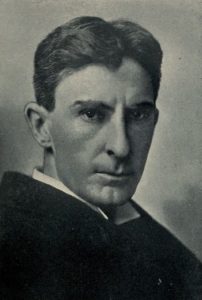
Thomas Dixon Jr.
*The birth of Thomas Dixon is marked on this date in 1864. He was a white-American novelist, segregationist, and minister.
Born in Shelby, North Carolina, He was raised in the aftermath of the American Civil War. One of his earliest childhood memories was of the Ku Klux Klan lynching a Black man who had been accused of raping the widow of a Confederate soldier. After the lynching, Dixon's mother told him justice had been done, and for the rest of his life, he never questioned the heroism of the Ku Klux Klan.
Dixon was educated at Wake Forest and Johns Hopkins University but left school to pursue a career as an actor. Failing on stage and failing as a lawyer, he became a Baptist minister like his father. As a minister, Dixon preached primarily in New York City, wrote 22 novels, and published many essays and sermons. In addition to his writings, he worked as a film producer. Dixon resented the post-Civil War Reconstruction and glorified the exploits of the Ku Klux Klan.
As an author, he wrote "Trilogy of Reconstruction," which consisted of The Leopard's Spots (1902), The Clansman (1905), and The Traitor (1907). In these novels, Dixon used historical romance to present Blacks as inferior to whites and glorify the antebellum American South. Dixon is best known for The Clansman, which was to become the inspiration for D. W. Griffith's influential Birth of a Nation (1915). While he claimed to oppose slavery, he believed in a hierarchy of race based on pseudo-scientific quasi-evolutionary theories.
Dixon was a classmate of future President Woodrow Wilson. He publicly praised The Birth of a Nation and helped institute the government's harshest segregationist policies before the Civil War. Dixon also wrote about the evils of socialism, which is mainly expressed in his trilogy: The One Woman (1903), Comrades (1909), and The Root of Evil (1911). In 1919, the book Comrades was made into a motion picture titled "Bolshevism on Trial." Thomas F. Dixon, Jr. died on April 3, 1946.